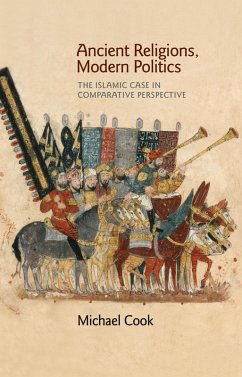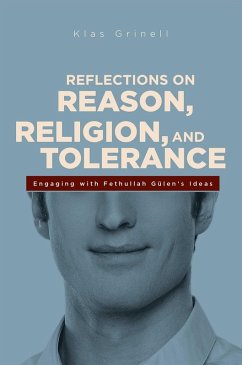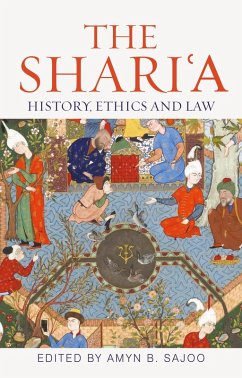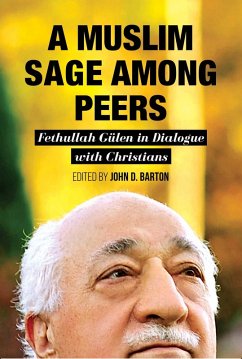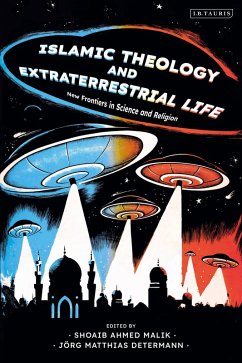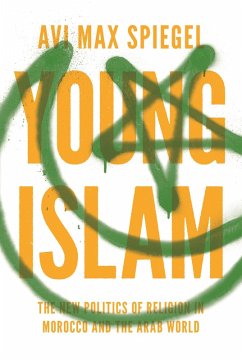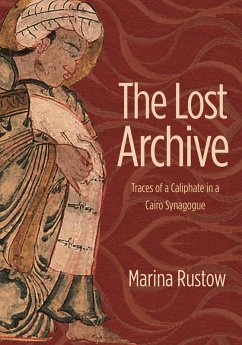
Islamic Political Thought (eBook, ePUB)
An Introduction
Redaktion: Bowering, Gerhard

PAYBACK Punkte
9 °P sammeln!
A concise and authoritative introduction to Islamic political ideasIn sixteen concise chapters on key topics, this book provides a rich, authoritative, and up-to-date introduction to Islamic political thought from the birth of Islam to today, presenting essential background and context for understanding contemporary politics in the Islamic world and beyond. Selected from the acclaimed Princeton Encyclopedia of Islamic Political Thought, and focusing on the origins, development, and contemporary importance of Islamic political ideas and related subjects, each chapter offers a sophisticated yet ...
A concise and authoritative introduction to Islamic political ideas
In sixteen concise chapters on key topics, this book provides a rich, authoritative, and up-to-date introduction to Islamic political thought from the birth of Islam to today, presenting essential background and context for understanding contemporary politics in the Islamic world and beyond. Selected from the acclaimed Princeton Encyclopedia of Islamic Political Thought, and focusing on the origins, development, and contemporary importance of Islamic political ideas and related subjects, each chapter offers a sophisticated yet accessible introduction to its topic. Written by leading specialists and incorporating the latest scholarship, the alphabetically arranged chapters cover the topics of authority, the caliphate, fundamentalism, government, jihad, knowledge, minorities, modernity, Muhammad, pluralism and tolerance, the Qur'an, revival and reform, shari¿a (sacred law), traditional political thought, 'ulama' (religious scholars), and women. Read separately or together, these chapters provide an indispensable resource for students, journalists, policymakers, and anyone else seeking an informed perspective on the complex intersection of Islam and politics.
The contributors are Gerhard Bowering, Ayesha S. Chaudhry, Patricia Crone, Roxanne Euben, Yohanan Friedmann, Paul L. Heck, Roy Jackson, Wadad Kadi, John Kelsay, Gudrun Krämer, Ebrahim Moosa, Armando Salvatore, Aram A. Shahin, Emad El-Din Shahin, Devin J. Stewart, SherAli Tareen, and Muhammad Qasim Zaman.
A new afterword discusses the essays in relation to contemporary political developments.
In sixteen concise chapters on key topics, this book provides a rich, authoritative, and up-to-date introduction to Islamic political thought from the birth of Islam to today, presenting essential background and context for understanding contemporary politics in the Islamic world and beyond. Selected from the acclaimed Princeton Encyclopedia of Islamic Political Thought, and focusing on the origins, development, and contemporary importance of Islamic political ideas and related subjects, each chapter offers a sophisticated yet accessible introduction to its topic. Written by leading specialists and incorporating the latest scholarship, the alphabetically arranged chapters cover the topics of authority, the caliphate, fundamentalism, government, jihad, knowledge, minorities, modernity, Muhammad, pluralism and tolerance, the Qur'an, revival and reform, shari¿a (sacred law), traditional political thought, 'ulama' (religious scholars), and women. Read separately or together, these chapters provide an indispensable resource for students, journalists, policymakers, and anyone else seeking an informed perspective on the complex intersection of Islam and politics.
The contributors are Gerhard Bowering, Ayesha S. Chaudhry, Patricia Crone, Roxanne Euben, Yohanan Friedmann, Paul L. Heck, Roy Jackson, Wadad Kadi, John Kelsay, Gudrun Krämer, Ebrahim Moosa, Armando Salvatore, Aram A. Shahin, Emad El-Din Shahin, Devin J. Stewart, SherAli Tareen, and Muhammad Qasim Zaman.
A new afterword discusses the essays in relation to contemporary political developments.




